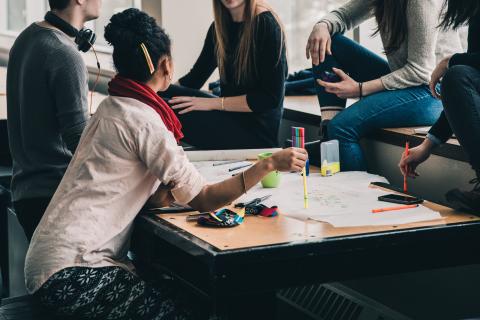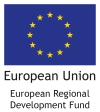A quick overview of our third call projects
The third call, brought to the Central Baltic programme 30 new projects, 23 regular and 7 small. The projects are distributed in all four priorities as follows: 5 in Priority 1, 7 in Priority 2 and 3 and 11 in priority 4 (4 regular and 7 small). At the moment 9 projects from the third call have been contracted, 7 small and 2 regulars.
A sample of what our third call projects will be up to
In Priority 1, new projects, mainly focus on opening new markets for Central Baltic companies as well as on supporting youngsters in the creation of digital startups. In Priority 2, the emphasis is on Urban and costal planning, on improving water quality and on using natural resources, such as the Central Baltic fauna, to boost tourism in the region. In Priority 3, projects are primarily directing their efforts to the improvement of small ports as well as on better connecting the region. Whilst in Priority 4, curricula in many fields are developed and/or aligned as well as community at risk of social exclusion are supported.
Short summaries
The short summaries below, provides a brief introduction to each project.
Priority 1
NNFA, "North Star Film Alliance" aims at increasing exports within the Estonian, Latvian and Finnish film production sector
SME Aisle is developing a joint concept that uses Namibia as a safe entry point to coastal Southern African (SA) countries in order to increase CB’s SME’s sales in the region,
IHMEC integrates relevant clusters from Sweden, Estonia and Finland into a meta-cluster, as well as creates and facilitates the export of Central Baltic IH (indoor hygiene) solution into Middle-East construction markets.
LEF network to China aims to facilitate the wood interior design industry access into the Chinese market.
DigiYouth develops enterpreneurial and cross-border cooperation skills for student companies focused on digital products and solutions.
Priority 2
Augmented Urbans (AU) provides a cross-border collaboration platform to Central Baltic cities willing to address integrated urban planning challenges.
Coast4us plans to develop a holistic and inclusive approach into the sustainable marine and coastal zone planning process, by involving stakeholders with different interests.
In order to extend the now short tourism season Baltic Wings aims at increasing visits to already known sites for birdwatching and other nature activities as well as to develop new sites.
Lakesperience develops Central Baltic lakes into a connected tourist attraction, in order to provide tourists with a joint map and information on the services available in each location.
Heat improves urban planning practices in the region by involving local citizens in the urban planning process.
SEABASED aims at reducing nutrients from the Baltic Sea and at improving water quality, especially in coastal areas, by piloting and developing sea-based activities.
HEAWATER individuates and tests technological solutions that may help to reduce pollution loads from/to small urban rivers in Tallinn (EE), Turku (FI) and Söderhamn (SE).
Priority 3
The EfficientFlow project is a joint Swedish and Finnish initiative that contributes at the development of the transport corridor to and between the ports of Gävle and Rauma and the ScanMed corridor between Stockholm and Turku.
Smart Marina aims at enhancing the level of ports' services by connecting them with other relevant actors across the Central Baltic region.
Sustainable Gateways (SG) sets up small boat harbors in national parks and nature reserves in the Finnish (4 harbors) and Swedish (3 harbors) outer archipelagos. With the project´s support, these harbors become sustainable and attractive gateways destinations for boaters.
BATSECO-BOAT aims to improve the capacity and service level of latrine sewage collection in small boat ports in Estonia, Finland, Sweden and Åland.
SEASTOP enables a consistent infrastructure investment in 21 small ports in the Stockholm/Åland/Turunmaa (SÅT) archipelago. The main common challenge is to develop and broaden the tourism and overnight stays by upgrading the service levels in the ports.
REFEC aims at supporting the establishment of the Eastern Finland-Eastern-Estonia transport corridor.
The e-ticketing project aims at connecting the ticketing systems in Tallinn, Tartu, and Helsinki to enable seamless travelling.
Priority 4
NatureBizz develops a professional training programme for micro entrepreneurs that exploit local natural resources in their business activities when producing sustainable, small-scale products and services that contribute to human wellbeing.
UniLog project aims at individuating which are the current and future logistic skills needed in the Central Baltic job market and at creating and piloting a joint study package in cooperation with Central Baltic student groups.
CoMET connects maritime simulator centers across the Baltic Sea to enable students to train within the same virtual learning environment.
Crea-RE aligns and produces contents on resource-efficiency to be used in environmental vocational education and training programmes (VET).
The ARC project aims at engaging immigrants with a refugee background in meaningful activities and interaction with the local community by providing them with systematic guidance in practical activities like building and farming, and practicing language skills.
CoMe Strong aims at decreasing the risk of social exclusion for men aged 45-75 by improving their skills and knowledge.
DSB provides best practices and new knowledge to professionals working with persons with DSB and to equip them with new tools to detect, intervene and handle relevant cases professionally.
Gardens, is an urban gardening project, where rehabilitation, education and job training are combined to tackle the risk of lifelong exclusion for long-term unemployed, and NEETS (Not in Education, Employment, or Training).
MUCH MORE contributes at improving social inclusion and health of middle-aged men with past addiction problem, who want to stay away from alcohol.
PRIME addresses the urgent need of supporting the social, cultural and labour market integration of young recently arrived migrants aged 18-30, and focuses on developing a joint Young Migrants Training Programme.
SimE aimes at developing and aligning nursing students’ ethical competence in Finland, Latvia and Sweden by creating common study courses in cooperation with the project partner institutions.
More information
More detailed information on our 7 small projects are available from the project database. Information about the 23 regular projects will be available soon.



